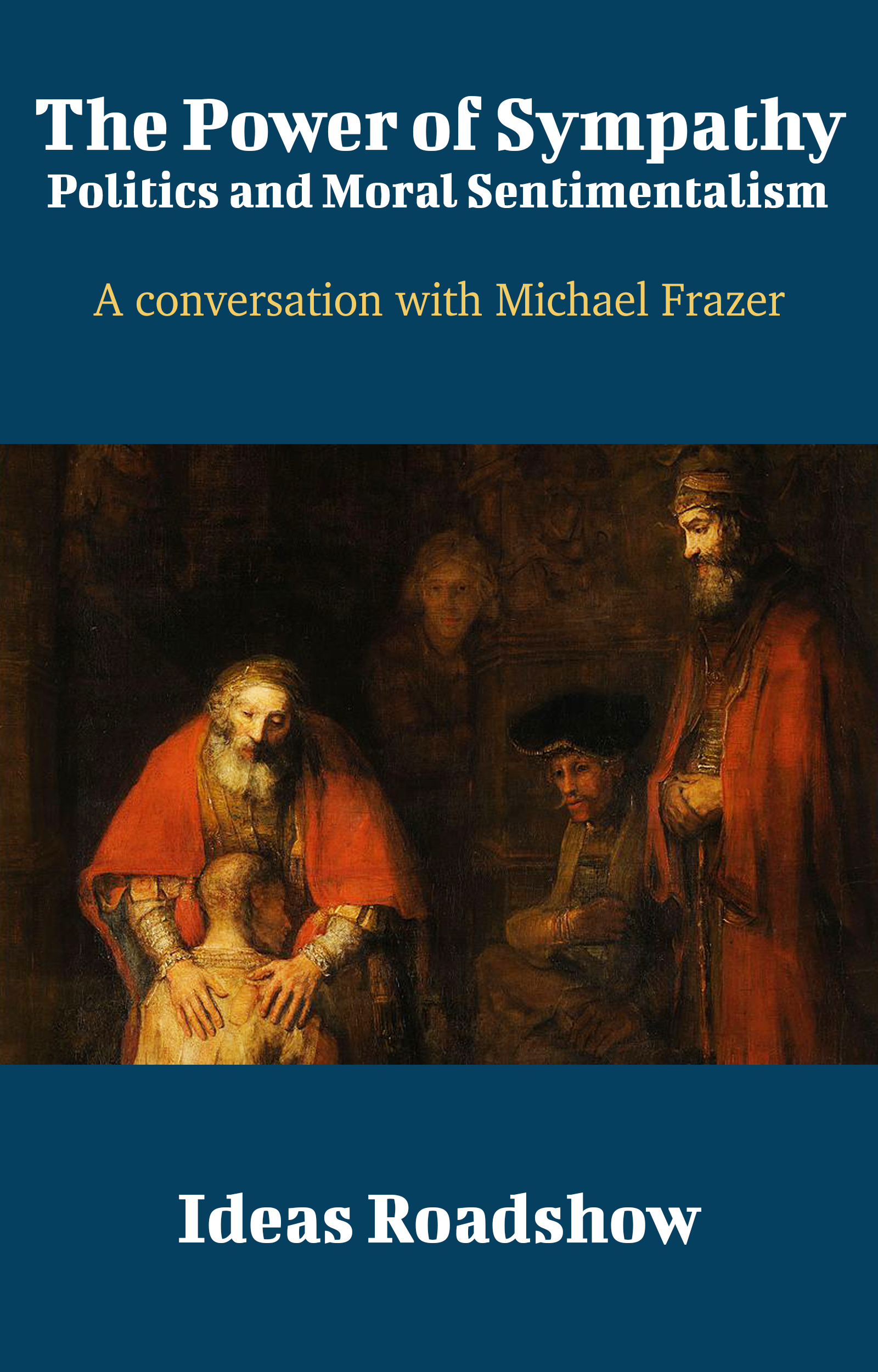The contents of this book are based upon a filmed conversation between Howard Burton and Michael Frazer in London, England, on October 14, 2016.
Introduction
More Than Reasonable
Like most people, had you asked me to name a synonym for the Enlightenment, doubtless the first word to come to mind would have been rationality. Of course, the Enlightenment means many things to many peoplereplacing religious superstition with scientific thinking, destroying social hierarchies, establishing comprehensive public educational effortsbut through all of its myriad incarnations, from The Moderate Enlightenment to The Radical Enlightenment, from Newtons inspiring legacy to Diderots groundbreaking encyclopedia, the one constant seems to be an overarching belief in the power of rational inquiry to enable humans to unlock their full potential.
But it turns out that thats hardly the whole story.
In his book, The Enlightenment of Sympathy, political philosopher Michael Frazer describes another, quite different, type of Enlightenment that is by no means uniquely guided by an emphasis on rationality, but nonetheless follows closely in the footsteps of the spirit of Immanuel Kants influential essay, What is Enlightenment?
Kant defines enlightenment as us overcoming our immaturity and being able to think for ourselves. Sapere audedare to be wisehe says. Thats the motto of enlightenment: dare to think for yourself.
In the book I call that reflective autonomy: the idea of thinking for yourself, reflecting on your own preexisting moral and political commitments and coming to evaluate them, only accepting them if they can survive that process of reflection and rejecting anything that cant.
But just because youre committed to reflective autonomy doesnt mean that youre committed to any one particular theory of what that reflection should involve.
Well, you might be tempted to wonder, what else can there possibly be? If Im thinking for myself, I must be reasoning; and if Im reasoning, I must be using my rational faculties.
But that, says Michael, makes the false equivalence between thinking and reasoning, an equivalence that the likes of David Hume, Adam Smith, Johann Gottfried Herder and others of the sentimentalist Enlightenment tradition emphatically rejected.
Theres a kind of democratic egalitarianism of the soul in the picture of autonomous reflection that Hume and Smith and Herder and other sentimentalists put forward.
Its still very much dare to be wise, sapere aude, question everything, come to your own conclusions, think for yourself. But now that thinking isnt something that you do with only one element of your psychology as opposed to other elements of your psychology. Its a process by which you draw on all of these various faculties.
For them, the faculty that holds it all together, especially socially, isnt reason, its sympathy. And sympathy itself is given different anatomies, different accounts of how it works. It usually cant be understood in terms of reason or emotion or imagination aloneimagination being another important faculty.
I think the best account of it is the one we find in Adam Smith, where it involves a kind of imaginative projection onto someone elses situation, working out what to feel if we were them in that situation, comparing what theyre actually feeling and doing to what we would feel or do, and then trying to bring those things into equilibrium with one another.
Its the fact that we crave sympathy with one another, that theres nothing we want more than for others to sympathize with us and we want to sympathize with others: thats the glue that holds it all together, socially.
Well, its always refreshing to learn that your preconceptions and historical understanding are decidedly more limited than they should be. So the Enlightenment wasnt justor certainly wasnt always justabout rationality after all. It turns out that there were many thoughtful and influential people, like David Hume and Adam Smith, who interpreted things far more broadly than the standard picture leads us to believe. Thats good to know.
But Michaels interest in these sentimentalist views is hardly limited to enriching our appreciation of history. The subtitle to, The Enlightenment of Sympathy, after all, is Justice and the Moral Sentiments in the Eighteenth Century and Today. For Michael, then, there is something very important about these often-overlooked perspectives that we would do well to pay attention to in order to deepen our contemporary sociopolitical understanding.
When I suggested to him that our current age of large-scale emotional manipulation and populist demonizing might argue for a market increase in rational thinking at the expense of notions of sentiment, he was quick to respond.
The real-world upshot of this book is, No, thats a terrible mistake. The only way to combat emotional immaturity and selfishness is through emotional maturity, sympathy, compassion, and empathy.
If were to overcome those emotional tendencies that we have, especially during times of fear or uncertainty, to withdraw into our own narrow perspectives as much as possible, the only resources we have that effectively pull people back out of that arent pure rational argument.
They are grounded in rhetorical appeals to our power, to emotionally connect with people different from ourselves. The best political rhetoric is often very, very emotional, but its a call to the compassionate sharing of emotion, rather than a call to narrow self-centred fear, let alone hatred. I think its very, very important.
Too often rhetoric gets identified with emotional manipulation, but theres a kind of emotional evocation that isnt manipulative, but presents people with the realities of others lived experiences and calls on people to identify with and concern themselves with those emotional experiences.
And the highest pieces of political rhetoric are the ones that expand peoples circles for the pursuit of something good, and rally them to oppose themselves to something that would narrow those circles.
So political philosophy can get very abstract and very disconnected from political practice. But I think there are very important takeaway points for political practice from an appreciation of the sentimentalist tradition.
A very well-reasoned and sensible analysis, I must sayeminently rational, even. But not just that.








